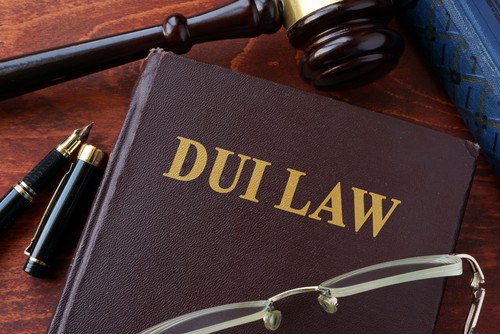
A charge of driving while intoxicated (DWI) has a lower threshold for commercial vehicle drivers than non-commercial drivers, and may also come with different legal consequences. A commercial DWI is a charge that can occur regardless of whether you were driving a commercial vehicle or your own vehicle. This charge may arise if:
- You drive a commercial vehicle; and
- You refuse to submit a breath or blood sample when asked by a law enforcement officer; or
- You register a blood alcohol concentration (BAC) of .04 or greater while driving a commercial vehicle or a BAC of .08 or greater while driving a personal vehicle.
The consequences of a commercial DWI may include the loss of your primary source of income for an extended period of time. A commercial DWI is a serious offense, and you may choose to accept assistance from a lawyer if you are facing a charge of commercial DWI.
Defining a Commercial Vehicle
According to the Texas Department of Public Safety (TxDPS) Chapter 6, a “commercial vehicle” is:
- A vehicle which may be either self-propelled or towed
- Has a gross weight of more than 26,000 pounds; or
- Is intended to carry 15 or more passengers (such as buses)
A vehicle may also qualify as a commercial vehicle if its intended use is to transport hazardous vehicles. Commercial vehicles and their drivers may be subject to more stringent rules and restrictions because:
- Their size and weight may pose a greater risk of harm to others than smaller passenger vehicles do.
- They may be carrying multiple people, and therefore may cause a greater scope of damage should they be involved in an accident.
- Driving a commercial vehicle generally requires greater driving skill and alertness than smaller vehicles, as evidenced by the various Federal Motor Carrier Safety Administration (FMCSA) tests that commercial drivers must pass.
- Commercial vehicles may be hauling material that could be extremely hazardous if it spills as the result of an accident.
One of the restrictions on drivers of commercial vehicles is the concentration of alcohol that you are permitted to have in your system in order to face a charge of driving while intoxicated.
Defining a DWI for Commercial Vehicle Drivers
According to Texas Statutes 522.101, commercial vehicle drivers:
- Are not permitted to have any amount of detectable alcohol in their system while driving their commercial vehicle
- May be removed from the road for a period of 24 hours if they refuse to submit to a breath or blood alcohol test or if they register a BAC between .01 and .03.
All commercial vehicle drivers give implied consent to breath or blood tests when they begin driving a commercial vehicle, and you may face a penalty for refusing such a test. If you refuse to give a breath or blood sample or register a BAC of .04 or greater, you could be charged with commercial DWI.
According to the TxDPS, you could face the following legal consequences if convicted of a commercial DWI:
- Loss of your commercial driver’s license for at least one year for a first offense
- Permanent loss of your commercial driver’s license for a second offense
If you are to lose your commercial driver’s license, either for over a year or permanently, then you may also:
- Lose your means of earning a living
- Have difficulty obtaining another commercial driving job even once your license suspension is complete
- Face additional negative consequences that stem from your conviction on a charge of commercial DWI
You will also face criminal penalties if you are convicted, regardless of whether you are driving a commercial vehicle or your personal vehicle. If this is your first offense, you face misdemeanor charges. This can include:
- Jail time
- Significant fines
- Suspension of your non-commercial driver’s license
A Texas Commercial DWI Lawyer May Be Able to Assist You
A charge of commercial DWI is a potential threat to your ability to earn an income, and potentially your long-term future in the commercial driving sector. You may want to hire a lawyer to:
- Collect any evidence to argue that you are not guilty of the charge against you
- Organize and execute a defense intended to minimize the harm that could come to you personally and professionally
- Consult any experts whose testimony may benefit your defense
- Handle all of your legal needs
- Answer all of your legal questions and concerns
- Defend your rights
A lawyer may serve as the defense between you and possible conviction, as well as the consequences that stem from a conviction.
Call Our Team at the Law Offices of Randall B. Isenberg Today
Lead attorney Randall B. Isenberg has more than thirty years of experience in the Texas judicial system as a former prosecutor, state district judge, and now an attorney serving those like yourself. Call our team at the Law Offices of Randall B. Isenberg today at (214) 696-9253 to learn more about how an attorney may be of assistance to you.










